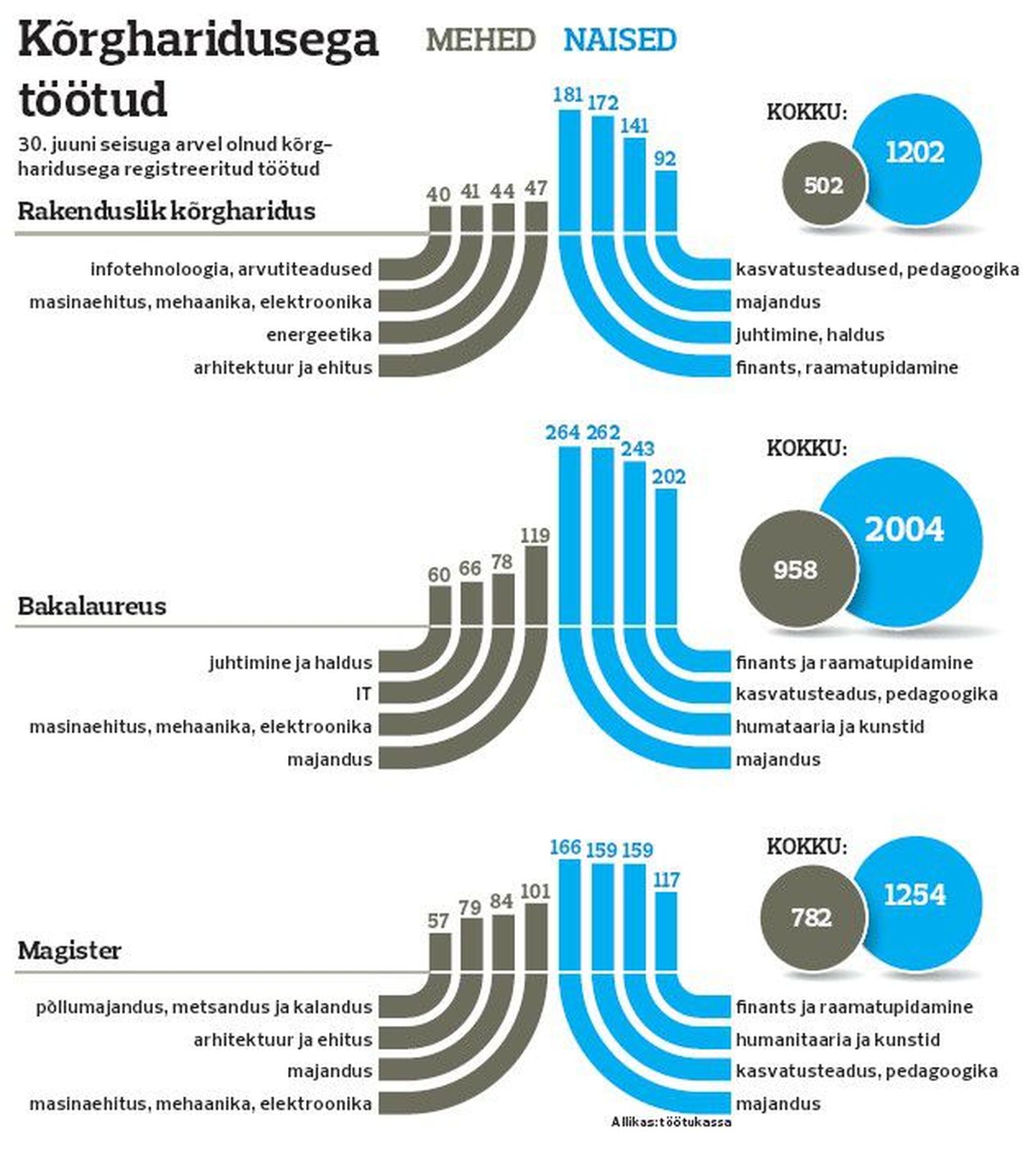
Estonia’s highly educated unemployed include large numbers of people with degrees in economics – a subject taught to many more than needed on labour market.

Estonia’s highly educated unemployed include large numbers of people with degrees in economics – a subject taught to many more than needed on labour market.
As published last week, female university graduates are twice as abundant as men. According to Unemployment Insurance Fund (Töötukassa) data, the ranks of unemployed ladies with higher education are double the size as well.
As at end of July, 4,475 highly educated women and 2,254 highly educated men have registered as unemployed. Of highly educated women, the unemployed with diplomas in economics and finances come in largest numbers – as many as 24 per cent. Among men, specialties as engineering industry, mechanics and electronics are the most problematic. Even so, they also include numerous unemployed persons with degrees in economics.
According to Raul Eamets, professor of macroeconomics at University of Tartu, unemployed people with degrees in economics and finances are definitely a problem; at the same time, the teacher underlined that we have mainly to do with people with professional higher education. As also confirmed by Töötukassa data: 30 per cent of those having a professional higher education.
There is a need for simple workmen, not highly educated engineers – which is very negative, actually.
«This is understandable, having many ladies among these. In economic studies, there is a majority of female students. The trouble being that economics curricula are everywhere... including the institutions of professional higher education. The quality greatly varies. Clearly, the pasture is too small for them all,» said Mr Eamets.
The professor thinks the problem arises from this having been a specialty offering great opportunities to make money. Therefore, many universities added economics-related specialties to their curricula – not being competent enough to teach these. Thus, economic degrees with poor quality were dished out in abundance, over the past decade. At the same time, added Mr Eamets, economic specialties tend to have large numbers of graduates, as the groups are usually big.
But why do highly educated graduates from technical specialties dominate the unemployed males? «There is a need for simple workmen, not highly educated engineers – which is very negative, actually. Revealing that we are doing subcontracting, we do not invent stuff ourselves,» said Mr Eamets.
Tauno Otto, dean of engineering industry at Tallinn University of Technology, is surprised by such data, as, in his estimation, there are no such problems with their students. «With us, it is the other way round. Companies demand workers and student start to work while they are still studying. That is out problem,» said he.
According to Rein Küttner, professor emeritus of Tallinn University of Technology, the problem may have arisen as, in 1960ies, admissions to engineering industry tripled and quadrupled. Now, however, their education no longer corresponds to market requirements.
Mr Otto added that in engineering industry, computer processing has become vital. Therefore, the competitiveness of older people may suffer.
Overall, the labour market situation is improving – such low levels of new unemployed registering were last seen just before the crisis, in August, 2008. Registered unemployment has come down to 5.4 per cent – a level last seen in the middle of 2004. Year-on-year, unemployment has come down by 14 per cent. Currently, 35,410 people are registered as unemployed.